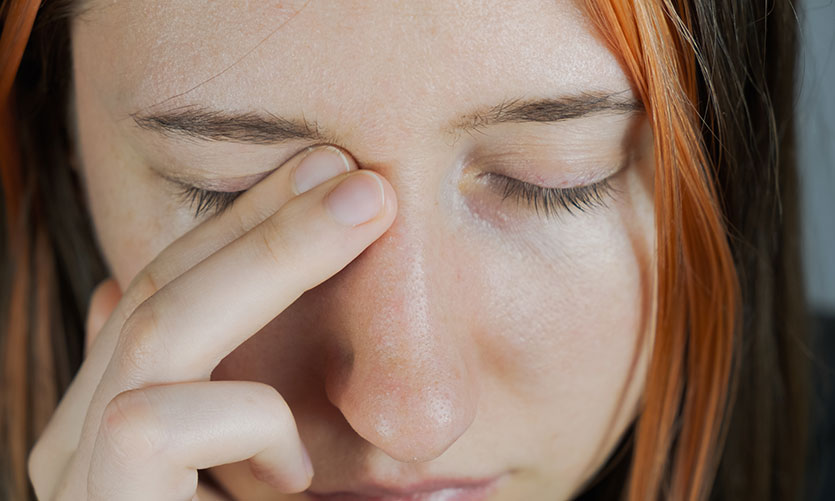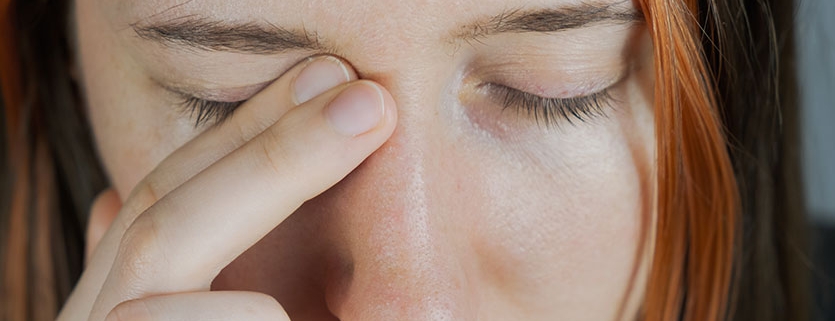Protect Your Immune Health by Avoiding These Immunity Don’ts

Feeling sick isn’t fun. That’s why it’s so important to protect your immune health. There are behaviors to do every day to support your immune system—you can find examples in this helpful story. But there are also immunity don’ts you should avoid.
Knowing what NOT to do is important. It can help you set boundaries and shape habits. So, check out these 12 immunity don’ts to see what you can do to help support your immunity.
Don’t: Skimp on Water
When you start feeling thirsty, your body is already dehydrated. Hydration is essential to a heathy body and powerful immune system. Without enough water, your body is less efficient and you feel sluggish and fatigued.
It’s hard to run an effective defense against germs with water in short supply. Water is necessary for the movement of mucus and phlegm, two barriers to viruses and bacteria. That’s because mucus and phlegm are sticky traps for microbes. This keeps germs from spreading to healthy cells.
Keep your body hydrated and happy by drinking at least eight glasses of water a day. Lots of water keeps mucus flowing. Your immune system needs that mucus to grab ahold of germs and help fight infection. Don’t forget to give your body enough water to do a good job.
Don’t: Blow Past Bedtime
As the proverb states, “Early to bed, early to rise, makes a man healthy, wealthy, and wise.” While an early bedtime might not guarantee financial success, it can keep you healthy.
Your immune system performs best when you give it enough sleep. A full eight-hour stretch allows your body time to regenerate and repair. Your immune system has important tasks to perform while you sleep, too.
So, don’t miss bedtime to help ensure you get adequate sleep. Also make the hour before bed as restful and peaceful as possible. Dim lights, turn off the television, and put down your phone. Relax and meditate to help yourself fall asleep faster.
Quality sleep is non-negotiable. If you need extra motivation to avoid staying up late, think of all the support a good night’s sleep gives your immune system.
Don’t: Touch Your Face
Your eyes, nose, and mouth are germs’ favorite ways to enter your body. If you want to give your immune system a hand, don’t touch your face.
While it might seem harmless, touching your face transports microbes from your hands to your body. Not all face-touching is sticking your fingers in your mouth. Rubbing your eyes, scratching your nose, biting your fingernails, all of these pesky habits introduce germs to your body.
It won’t be easy, but if you struggle with touching your face, you can break the habit. Try to hold yourself accountable for the sake of your immunity. Paint your fingernails to avoid biting them, and keep your hands occupied to resist rubbing your eyes. Reward yourself when you succeed. Find a family member or friend to remind you when you slip up. And if you have to touch your face, wash your hands first.
Don’t: Smoke
There’s no sugar-coating it—smoking is a dangerous habit that affects your whole body, immune system included.
Smoke from cigarettes destroys the lining of protective epithelial cells lining the inside of your mouth, nose, and throat. You need this layer of cells to safeguard your airway from germs. Smoking also injures lung tissue, which is particularly vulnerable to infection from viruses and bacteria.
Quit smoking as soon as possible to protect your lungs and overall immunity.
Don’t: Drink too Much Alcohol
Binge drinking harms your immune system in similar ways to smoking. Chronic binge drinking damages the cells lining your mouth and throat. It also limits the function of white blood cells—your immune system’s attack force against pathogens.
The proof? Heavy drinking is correlated with being sick more often. So, too much alcohol seems to weaken your immune system and increase your susceptibility to illness.
Cut down on excess drinking to support your immunity. Your body can tolerate moderate, responsible drinking—one drink per day for women, and two per day for men. Just be careful of overdoing it.
Don’t: Forget to Wash Your Hands
Handwashing is the single most effective way to protect yourself from potential pathogens. And it’s an easy habit to adopt. Remember to wash your hands before eating, after using the restroom, and after you visit public places.
But it’s not as simple as rinsing off your hands. Proper handwashing technique takes practice. Visit this handwashing guide to learn how to do it right. And start washing your hands frequently to take some pressure off your immune system and stop the spread of germs to others.
Don’t: Misuse Sanitizers and Disinfectants
Sanitizing, disinfecting, and overall cleanliness will help limit your exposure to germs. Don’t go overboard, though. The products you use to kill germs can also be bad for you if you don’t use them properly.
Never use cleaners, disinfectants, or sanitizers made for surfaces, glass, fabric, or your bathroom on your skin or inside your body. These products range from irritating to toxic. Wear proper protective equipment (like gloves or goggles) while disinfecting areas of your house.
It may seem obvious, but absolutely don’t drink any of these cleaners, use disinfectant sprays on yourself, expose yourself to ultra-harmful UVC sanitizing lights. Ingesting or injecting these into your body could result in a call to poison control or an emergency-room visit.
Hand sanitizer is the exception. They’re designed for use on your skin—and only on your skin. Alcohol-based hand sanitizers (both sprays and rubs) work great for hand hygiene in a pinch. But you should only use them as directed by manufacturer’s instruction. Also make sure to supervise children using hand sanitizers, so they use them properly and effectively.
Don’t: Skip Your Workout
When you choose the couch over exercise, your fitness isn’t the only thing that suffers. Moderate workouts can help maintain a healthy immune system.
Regular exercise is linked to better immune function and fewer bouts with sickness each year. That’s because physical activity improves circulation of blood and the lymphatic fluid that make up your immune system. Aerobic exercise also helps strengthen your lungs, making them more efficient at getting oxygen to your body.
Maintaining consistent workouts helps you build up healthy muscles and joints, while enjoying the added bonus of protecting yourself from sickness.
Don’t: Limit Your Fruits and Veggies
Diet plays a big part in supporting your body’s immune response. Fill your plate with foods that help maintain a healthy immune system. And fruits and vegetable are a great place to start.
Try to eat a fruit or vegetable in every meal. That’s because antioxidants and vitamins are densely packed in tasty fruits like oranges, apples, bananas, and berries. Your body needs antioxidants to help destroy the structures of viruses and bacteria before they can harm healthy cells.
Veggies supply your blood with minerals—like iron and magnesium—and your body with beta-carotene and B vitamins. Each are important nutrients that support immune function. They keep cells healthy so your immune system can focus on hunting down invaders.
Don’t: Miss a Daily Dose of Vitamins
Supplements are a great for supporting your body with vitamins and minerals that help support your immune health. So, make sure you keep taking your multivitamins.
Look for supplements with a good amount of vitamins C, B6, and E. These antioxidants support your immunity and help maintain the health of your tissues and cells from damaging microorganisms. Vitamin C also supports your body’s normal production of white blood cells. They’re the immune cells that find and destroy potential pathogens.
A supplement is a reliable source of quality nutrition your immune system can depend on. Use nutritional supplements in conjunction with a healthy diet to properly support your immunity.
Don’t: Go to Work When You’re Sick
If you have the option to stay home from work when you’re under the weather, take it. This practice doesn’t put others at risk and gives you time to recover.
Think about all the shared spaces and objects you touch in the office. A sneeze or cough leaves droplets with germs behind. Those germs can linger for hours or days on just about any surface. This makes it easy for whatever bug made you sick to spread to a coworker.
Consider the people you work with when you want to tough out a cold and go into work. They will be thankful you stayed home and rested instead of testing their immune systems. You might even find that you recover faster when you take time off to recuperate at home.
Don’t: Let Stress Overwhelm You
It’s best for you and your immunity to slow down and minimize stress. That’s easier said than done. Stress can creep in from work, school, and family responsibilities. And it takes a serious toll on your immune system if not properly managed.
Stress suppresses just about every bodily function, immunity included. When life’s daily tasks pile up, your immune system has to slow down to accommodate. Cortisol (a stress hormone) floods your bloodstream and impacts your immune responses. White-blood-cell production drops off, making you an easier target for a cold or flu virus.
Managing stress is an artform that takes years of practice. But you can start to minimize stress by taking an inventory of your daily responsibilities. Try to remove unnecessary activities that take up time and energy. Learn to say no to assignments you can’t manage. Ask for help when you’re overwhelmed.
Learning to cope with stress will protect your immunity and overall health. Sleep, exercise, meditation, and counseling are other great ways to handle stress. Put your wellbeing ahead of the tasks you have to do so you can reduce stress for a happier, healthier life.
Now Review What to Do for Immune Health
Armed with a list of what NOT to do, now you can focus on building habits that can help support your immune system.
Set a goal to be vigilant about drinking water and washing your hands. Be courteous and stay home from work when you feel ill. Show your body respect by fueling it with whole fruits and veggies, while saying no to smoking and drinking in excess.
Learn the habits that help support immunity and learn what to avoid. Your lifestyle decisions have the capacity to make a difference in your immune health.
References
https://www.ncbi.nlm.nih.gov/pmc/articles/PMC4911891/
https://www.health.harvard.edu/healthbeat/six-ways-you-can-help-your-immune-system
https://www.sleepfoundation.org/articles/how-sleep-affects-your-immunity
https://health.clevelandclinic.org/6-surprising-ways-alcohol-affects-health-not-just-liver/
https://health.clevelandclinic.org/3-vitamins-best-boosting-immunity/
https://www.nytimes.com/2020/03/05/health/stop-touching-your-face-coronavirus.html
https://www.health.harvard.edu/staying-healthy/how-to-boost-your-immune-system
https://www.cdc.gov/flu/business/stay-home-when-sick.htm
https://health.clevelandclinic.org/what-happens-when-your-immune-system-gets-stressed-out/
https://www.mayoclinic.org/diseases-conditions/dehydration/symptoms-causes/syc-20354086














